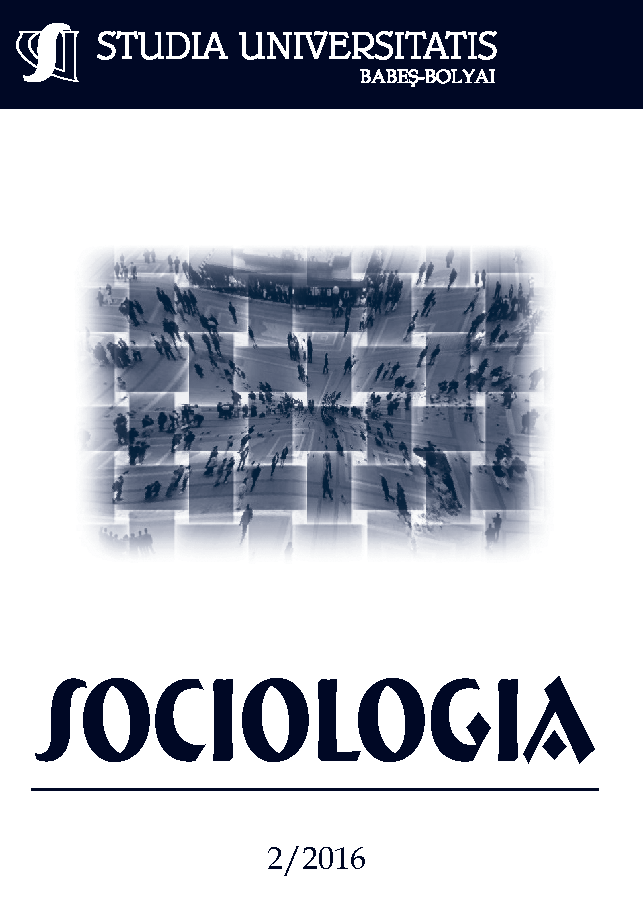NEW SPIRIT AND NEW HERO: HOW HUNGARIAN STARTUPS REDEFINE THE IDEAS OF LOCAL CAPITALISM
Keywords:
startups, ideology, digital capitalism, management of work, entrepreneurship, post-politicsAbstract
The present paper investigates how the Bridge Budapest, a CSR organization founded by leading Hungarian IT startups, attempts to shape the values of Hungarian society towards capitalism in general, and towards entrepreneurship in particular. In my paper I argue that the central aim of the organization is to facilitate Hungary’s catching up with the core capitalist countries through the transformation of the attitudes and the ideologies surrounding capitalism in the Hungarian context, i.e. the local spirit of capitalism. This consists, on the one hand, of restoring the legitimation of some of the core institutions of capitalism, such as the enterprise and the entrepreneur, and of confronting the risk-taking, innovative and ethical figure of the entrepreneur hero with the provincial figure of the postcommunist cheater. On the other hand, it also consists of propagating a new management of work that aims to produce self-controlling and self-motivating employees. In the narrative of Bridge Budapest IT companies appear as the perfect moral and economic subjects – the bearers of the new spirit of capitalism – that have the expertise to offer solutions to the problems of Hungarian society, and around which the local capitalism should be built.
References
Boltanski, L., Chiapello, È. (2007 [1999]). The New Spirit of Capitalism. New York: Verso.
Boltanski, L., Thévenot, L. (2006 [1991]). On Justification: Economies of Worth. Princeton: Princeton University Press.
Böröcz, J. (2012). Hungary in the European Union: ’Catching Up’, Forever. Economic & Political Weekly, 47(23): 22–25.
Éber, M., Gagyi, Á., Gerőcs, T., Jelinek, Cs., Pinkasz, A. (2014). 1989: Szempontok a rendszerváltás globális politikai gazdaságtanához [Viewpoints for the global political economic analysis of the regime change]. Fordulat, (21): 11–63.
Fourcade, M., Healy, K. (2007) Moral Views of Market Society. Annual Review of Sociology, 33: 285-311.
Mannheim, K. (1998 [1929]). Ideology and Utopia. London: Routledge.
McCoy, S.K., Major, B. (2007). Priming Meritocracy and the Psychological Justification of Inequality. Journal of Experimental Social Psychology, 43(3): 341–351.
Prince, R. (2015). The Spaces in Between. Mobile Policy and the Topologies and Topographies of the Technocracy. Environment and Planning D: Society and Space, 34(3): 1–18.
Rancière, J. (2004). Introducing Disagreement. Angelaki. Journal of Theoretical Humanities, 9(3): 3–9.
Schumpeter, J. (1928). The Instability of Capitalism. The Economic Journal, 38(151): 361-386.
Sennett, R. (1998): The Corrosion of Character. The Personal Consequences of Work in the New Capitalism. New York and London: W. W. Norton & Company.
Wallerstein, I. (2004). World-systems Analysis: An Introduction. Durham and London: Duke University Press.
Online Sources
Bridge Basics (2015): Gyors iterációkra fókusz: learnings/day maximalizálása – Vészi Gábor, Bridge Basics, https://www.youtube.com/watch?v=qgXkMh__iGk (Accessed: 10 April 2016).
Bridge Basics (2015): Hogyan tudom motiválni az alkalmazottaimat? Hodicska Gergely, Bridge Basics, https://www.youtube.com/watch?v=vzX57bE28YE (Accessed: 10 April 2016).
Bridge Basics (2015): Miért a csapatoddal és ne a termékeddel törődj elsősorban? – Halácsy Péter, Bridge Basics, https://www.youtube.com/watch?v=9qJjsLutg4Q (Accessed: 10 April 2016).
Bridge Basics (2015): Miért fontos a vállalati kultúra kiépítése? Hodicska Gergely, Bridge Basics, https://www.youtube.com/watch?v=Yj3GPCVsKjY (Accessed: 10 April 2016).
Bridge Basics (2015): Miért nem érdemes a problémákra fókuszálni? Somlai-Fischer Ádám, Bridge Basics, https://www.youtube.com/watch?v=p450d1AJD5U (Accessed: 10 April 2016).
Bridge Basics (2015): Mitől lesz inspiráló egy munkakörnyezet? Hambalkó Rita, Bridge Basics, https://www.youtube.com/watch?v=9lQ8TnHRm7w (Accessed: 10 April 2016).
Bridge Budapest (no date): Bridge Budapest Ösztöndíj Tehetségeknek, http://hu.bridgebudapest.org/osztondij (Accessed: 10 April 2016).
Bridge Budapest (no date): Bridge Builders 2014/15, http://hu.bridgebudapest.org/bridgebuilders/2014-2015 (Accessed: 10 April 2016).
Bridge Budapest (no date): Bridge Builders 2015/16, http://hu.bridgebudapest.org/bridgebuilders_2014 (Accessed: 10 April 2016).
Bridge Budapest (no date): Kik vagyunk? http://hu.bridgebudapest.org/kik-vagyunk (Accessed: 10 April 2016).
Első millióm (2015): Miért éri meg vállalható módon vállalkozni? Árvai Péter véleménye. https://vimeo.com/139123014 (Accessed: 10 April 2016).
Első millióm (2015): Történetek, http://www.elsomilliom.hu/tortenetek (Accessed: 10 April 2016).
Első millióm (no date): A magyar vállalkozó két arca: a szorgalmas innovátor és a simlis. http://www.elsomilliom.hu/kutatasok (Accessed: 10 April 2016).
Első millióm (no date): Miért éri meg vállalható módon vállalkozni? http://www.elsomilliom.hu/ervek (Accessed: 10 April 2016).
U. S. Small Business Administration (no date): Startups & High Growth Businesses, https://www.sba.gov/content/startups-high-growth-businesses (Accessed: 10 April 2016).
Interviews
Faix, Csaba, Interview by the author, 15 February 2016, Budapest
Pistyur, Veronika, Interview by the author, 16 March 2016, Budapest
Tordai Bence, Interview by the author, 16 February 2016, Budapest
Varró Balázs, Interview by the author, 23 February, 2016, Budapest
Downloads
Published
How to Cite
Issue
Section
License
Copyright (c) 2016 Studia Universitatis Babeș-Bolyai Sociologia

This work is licensed under a Creative Commons Attribution-NonCommercial-NoDerivatives 4.0 International License.



